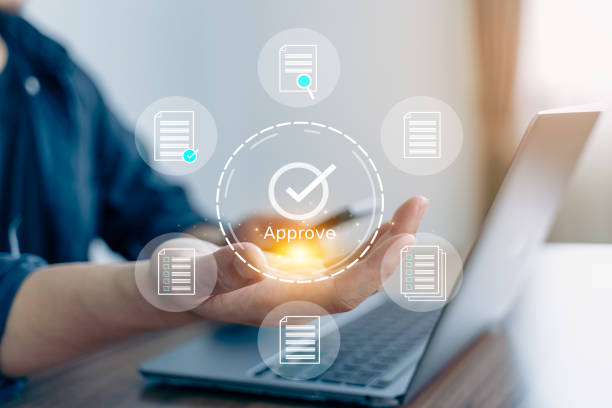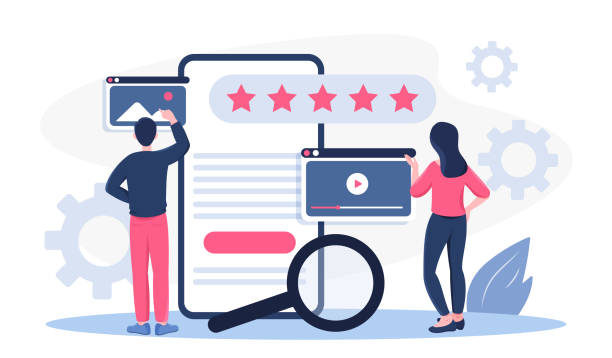What is Off-Page SEO and Why is it Crucial for Your Website?
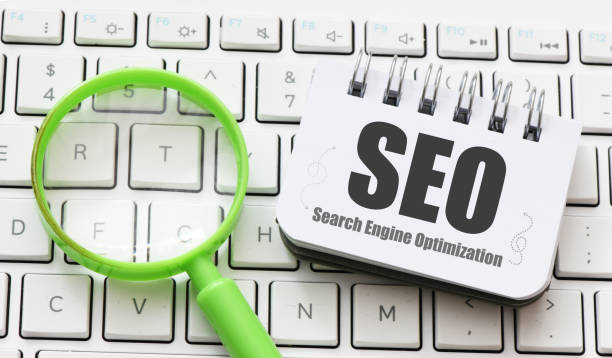
In today’s highly competitive world of search engine optimization, a precise and practical understanding of various concepts is essential for a website’s success.
One of the most important of these concepts is **Off-Page SEO**, or off-site optimization.
This part of SEO encompasses all actions taken outside of your website to increase its authority, domain power, and ultimately its ranking in Google search results.
Unlike on-page SEO which focuses on optimizing your site’s content and structure, off-page SEO deals with factors that exist on other websites but refer to your site.
These factors include #backlinks, #brand mentions, and #social media signals.
The importance of off-page SEO lies in the fact that search engines like Google consider websites more authoritative and trustworthy if they receive referrals and recommendations from other reputable and relevant sources on the web.
These referrals act as a vote of confidence, showing Google that your site’s content is valuable and useful.
Therefore, without a strong off-page SEO strategy, even if you have very high-quality content, you may struggle to compete for top rankings.
This concept is not only the key to online visibility success but also the backbone of increasing website traffic and attracting target audiences.
Are you tired of your company’s website not meeting your expectations? With Rasaweb, design a professional website that truly represents your business.
✅ Increased acquisition of new customers and sales leads
✅ Increased brand credibility and trust among your audience
⚡ Get a free website design consultation!
What are the Main Pillars of Off-Page SEO? An Educational Overview

To deeply understand **Off-Page SEO**, we need to recognize its main pillars.
These pillars include a set of activities that all pursue a common goal: increasing your website’s credibility and referencibility in the online space.
The most important and well-known pillar is, without a doubt, Link Building.
Backlinks, or inbound links from other sites to your site, act as a vote of confidence, and the higher the number and quality of these links, the more credible your site becomes in Google’s eyes.
Links received from reputable and relevant domains have significantly more value than low-quality links.
The second pillar is Brand Mentions.
Even if no link is provided to your site, merely mentioning your brand or product on other websites, forums, or platforms can help search engines understand your brand’s presence and credibility.
These mentions indicate your reputation and acceptance.
The third pillar is Social Signals.
Sharing your content on platforms like Twitter, Facebook, LinkedIn, and Instagram, while not directly affecting rankings, can help increase your content’s visibility, attract traffic, and consequently generate natural backlinks.
Additionally, consistent activity on social media shows search engines that your brand is active and engaging with its audience.
Finally, content marketing is also indirectly one of the fundamental bases of off-page SEO; because high-quality and engaging content naturally brings natural links and social shares, requiring less effort to build off-page SEO.
The Art of Link Building in Off-Page SEO: Quality Over Quantity

One of the most crucial aspects of **Off-Page SEO** is link building, which often comes with its own complexities.
In the past, many webmasters sought to acquire the maximum number of backlinks, regardless of their quality.
However, with continuous updates to Google’s algorithms, the quality of backlinks has surpassed their quantity.
A backlink from a reputable, relevant, and high-authority website can have a far greater impact than hundreds of low-quality and spammy backlinks.
Google seeks to identify natural links that are created organically based on content value, not links created artificially with the aim of manipulating rankings.
Link building in off-page SEO is done through various methods, each requiring its own strategy:
- Natural Links (Editorial Links): These links are created when other websites voluntarily link to you due to the value of your content.
- Links from Content Promotion: By creating engaging content and then promoting it on social media and relevant platforms, you can attract the attention of webmasters and acquire natural links.
- Guest Posting: Writing articles for other websites and receiving a link in return is a popular method, though it must be done carefully and for relevant sites.
- Broken Link Building: Finding broken links on other sites and suggesting replacing them with your own content.
Also, attention should be paid to the Anchor Text, or the linked text.
Using diverse and natural anchor texts that include your target keywords can help your off-page SEO, but excessive use of a specific anchor text can be considered spam.
In the table below, we discuss the difference between high-quality and low-quality links in a link-building strategy:
| Feature | High-Quality Link (Positive for Off-Page SEO) | Low-Quality Link (Negative for Off-Page SEO) |
|---|---|---|
| Referring Domain Authority | High (Reputable and well-known sites) | Low (Spammy or new sites without authority) |
| Topical Relevance | Highly relevant to your site’s content | Irrelevant or with low relevance |
| Link Placement | Within the main and natural content | In the footer, sidebar, or spam comments |
| Anchor Text | Natural and diverse (brand, URL, long-tail keywords) | Often always the same and only keywords |
| Link Type | DoFollow from reputable and relevant sites | Often NoFollow from irrelevant sites or DoFollow from PBNs |
| Number of Links from One Domain | Diverse and distributed among different domains | High number from a specific domain or PBN |
The Importance of Thought-Provoking and Analytical Content in Attracting Backlinks
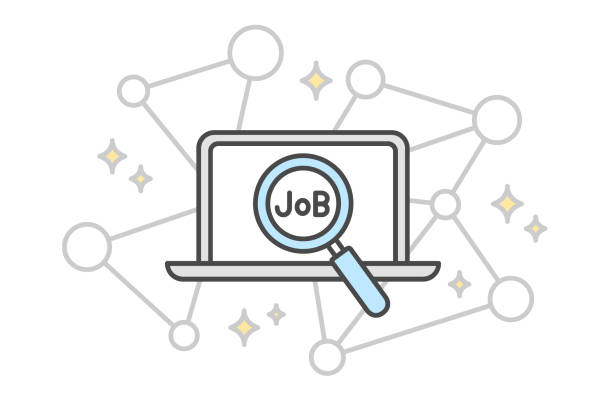
One of the key strategies in off-page SEO strategy is to produce content that is not only informative and useful but also raises new questions or provides deep analysis of topics.
Thought-provoking and analytical content, due to its profound and contemplative nature, has high potential for attracting natural and high-quality backlinks.
When you publish an article that challenges a common belief, offers a new perspective, or analyzes new and interesting data, other webmasters and bloggers are highly likely to refer to it.
This type of content, unlike merely descriptive or news-based content, engages the audience and allows them to think about the topic and even express their opinions.
To create such content, you can consider the following:
- Case Studies: Analyzing a specific project or situation, presenting results and lessons learned.
- Research Papers: Presenting new data or collecting and analyzing existing data in an innovative way.
- Controversial Content: Gently and ethically challenge common beliefs or propose different viewpoints.
This type of content can spark many discussions, leading to more links and shares. - Data-Driven Infographics: Visualizing complex data in an understandable and engaging way.
Infographics, due to their high shareability, are a powerful tool for increasing social signals and backlinks.
Focusing on this type of content not only helps improve your **Off-Page SEO** but also increases your credibility as an authoritative source in your industry, leading to increased organic traffic and brand recognition.
Does your company’s website create a professional and lasting first impression in the minds of potential customers? Rasaweb, with professional corporate website design, not only represents your brand’s credibility but also opens a path for your business growth.
✅ Creating a powerful and trustworthy brand image
✅ Attracting target customers and increasing sales
⚡ Get a free consultation
The Role of Social Signals and Brand Mentions in Off-Site Optimization

In addition to backlinks, social media signals and brand mentions are two other crucial factors in off-site optimization that are often overlooked.
Although direct signals from social media, such as the number of likes or shares, do not directly influence Google’s ranking algorithm, they have a significant indirect impact on off-page SEO.
When your content is widely shared on social media, its visibility increases.
This increased visibility leads to more traffic to your website, and the likelihood of more people seeing your content and eventually linking to it increases.
Furthermore, brand mentions, even without direct links, play an important role.
Google seeks to understand how brands and businesses are perceived and discussed by users and other authoritative sources in the real world.
Whenever your brand name is mentioned in an article, podcast, or even in an online forum discussion, this indicates to Google that your brand is reputable and well-known.
These “unlinked mentions” act as “reference points” for Google, helping Google’s overall understanding of your brand’s reputation and authority.
Therefore, being active on social media, participating in online discussions, and encouraging reviews of your products or services can significantly help strengthen these signals and improve overall off-page SEO.
This approach is considered a fundamental component of a comprehensive SEO strategy.
Producing Entertaining and Viral Content to Increase Off-Site Interactions

One of the creative and effective ways to strengthen **Off-Page SEO** is to produce entertaining and viral content.
This type of content, unlike purely educational or analytical content, aims to appeal to emotions and encourage sharing.
Viral content has high potential for widespread visibility and can organically spread rapidly across the internet.
This process leads to a significant increase in brand mentions, social signals, and even natural backlinks.
Examples of entertaining and viral content that can help with off-page SEO:
- Quizzes and Surveys: Creating engaging quizzes or industry-relevant surveys that provide interesting results.
- Creative and Humorous Infographics: Transforming dry information into engaging and sometimes witty visuals.
- Short and Viral Videos: Producing funny, inspiring, or surprising video content that encourages people to share.
- Interactive Content: Tools, calculators, or small games that users can enjoy and share their results.
- Storytelling: Narrating real or fictional stories related to your brand that engage the audience’s emotions.
The key to successful viral content creation is a deep understanding of your audience and their interests.
This content must be engaging enough to compel users to share it spontaneously, thereby naturally expanding your brand’s reach.
This approach not only helps strengthen your off-page SEO strategy but also leads to increased brand awareness and deeper engagement with your audience.
These activities ultimately add to your overall domain power.
Key Tools and Metrics for Measuring Off-Page SEO Success
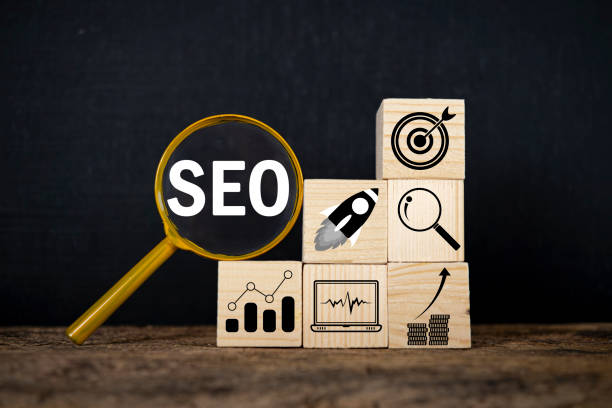
To ensure the effectiveness of off-page SEO strategies, we need appropriate tools and precise metrics for monitoring and analyzing performance.
Measuring success in **Off-Page SEO** helps you identify your strengths and weaknesses and improve future strategies.
Some of the most important tools and metrics to pay attention to include:
Tools:
- Ahrefs/Semrush: These tools are excellent for backlink analysis, checking domain authority/rating, competitor research, and finding new link-building opportunities.
- Google Search Console: This free Google tool provides valuable information about backlinks identified by Google, site errors, and keyword performance.
- Moz Link Explorer: A tool for checking Domain Authority (DA) and Page Authority (PA) and analyzing backlink profiles.
- Social Media Analytics Tools: For monitoring social signals and the extent of your content’s sharing on various platforms.
Metrics:
- Number of Backlinks: The number of inbound links to your site.
- Quality of Backlinks: Examining the authority of the linking domain and page, topical relevance, and link placement.
A strong link profile is essential for off-page SEO. - Increase in Domain Authority/Rating: A metric that predicts the overall strength of a domain and is provided by tools like Moz or Ahrefs.
- Referral Traffic: The amount of traffic coming to your website through inbound links from other sites.
- Keyword Rankings: Improvement in the ranking of your target keywords in search results, which can be an indicator of off-page SEO success.
- Brand Mentions: The number of times your brand name has been mentioned in the online space.
In the table below, a comparison between two important metrics for measuring domain authority in off-page SEO is presented:
| Metric | Description | Application in Off-Page SEO | Tool Provider |
|---|---|---|---|
| Domain Authority (DA) | A predictive ranking metric that predicts the likelihood of a website ranking in search engines. Scale 1 to 100. |
Measuring overall domain authority and comparing with competitors; selecting high-DA domains for link building. | Moz |
| Domain Rating (DR) | A metric of a website’s backlink profile strength on a scale of 0 to 100. The higher the DR, the more powerful backlinks a site has. |
Assessing the strength of inbound backlinks to your site and competitors; identifying reputable sites to acquire links from. | Ahrefs |
Avoiding Common Off-Page SEO Mistakes: What Not to Do

On the path to implementing **Off-Page SEO** strategies, there are some common mistakes that, instead of improving, can cause serious harm to your site’s ranking.
Recognizing and avoiding these mistakes is crucial for long-term success.
This section is designed as an educational guide to make you aware of potential risks.
The first and most important mistake is focusing solely on the quantity of backlinks and neglecting their quality.
As mentioned earlier, Google looks for natural and relevant links.
Buying links in large quantities, using Private Blog Networks (PBNs), or receiving links from low-quality and spammy sites can lead to manual or algorithmic penalties from Google.
The second mistake is excessive use of a specific, keyword-rich anchor text.
This clearly indicates to Google that the links were artificially created and can be considered “over-optimization”.
You should strive to have a natural and diverse anchor text profile that includes brand names, naked URLs, generic anchor texts (like “click here”), and relevant keywords.
The third mistake is neglecting to disavow toxic links.
If you discover that low-quality or spammy backlinks are pointing to your site (which might be due to negative SEO attacks from competitors), you should inform Google about them using the Google Search Console Disavow tool to prevent them from affecting your site’s ranking.
Finally, ignoring the need for a comprehensive off-page SEO strategy and focusing solely on link building is also a major mistake.
Off-page SEO extends beyond links and includes activities such as content marketing, social media engagement, and online reputation management.
A comprehensive and coordinated approach will be the guarantor of success in off-page SEO and a stable increase in your website’s ranking.
Are you tired of your company’s website not meeting your expectations? With Rasaweb, design a professional website that truly represents your business.
✅ Increased acquisition of new customers and sales leads
✅ Increased brand credibility and trust among your audience
⚡ Get a free website design consultation!
The Future of Off-Page SEO: Developments and Upcoming Trends
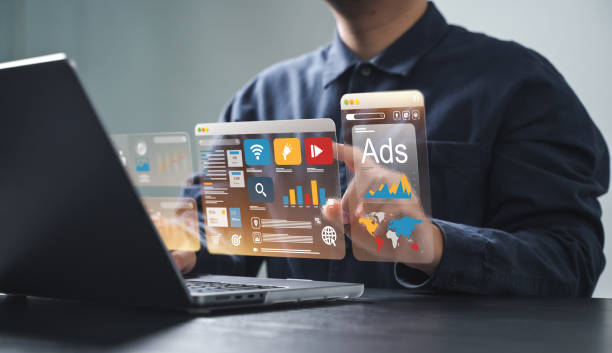
The world of SEO is constantly changing, and **Off-Page SEO** is no exception.
For SEO specialists and website owners, understanding upcoming developments and trends is crucial to keep their strategies updated.
One of the most important trends is Google’s increasing focus on the “E-E-A-T” concept (Experience, Expertise, Authoritativeness, Trustworthiness).
This means Google is increasingly looking for sources that not only provide high-quality content but are also endorsed by expert and authoritative individuals and entities.
This significantly enhances the importance of backlinks from reputable sources and brand mentions.
Another trend is the growing importance of voice and local search.
Although these factors primarily relate to on-page and local SEO, a business’s off-site reputation and credibility (such as user reviews and ratings) directly impacts local and voice search results.
Furthermore, the emergence of artificial intelligence and more complex algorithms means that search engines can better distinguish artificial links from natural ones.
This signifies a decrease in the effectiveness of “Black Hat SEO” techniques and an increase in the value of “White Hat” strategies in off-page SEO.
In the future, it can be expected that relationship-based link building and establishing a network of connections with webmasters and industry professionals will play a more prominent role, rather than merely buying or exchanging links.
Producing deep and specialized content that naturally attracts links (Link Bait) will remain a powerful strategy.
Ultimately, off-page SEO will move towards a more comprehensive and human-centric approach, where the main goal is to create genuine authority and value for users, rather than merely manipulating algorithms.
Off-Page SEO and On-Page SEO: Synergy for Maximum Efficiency
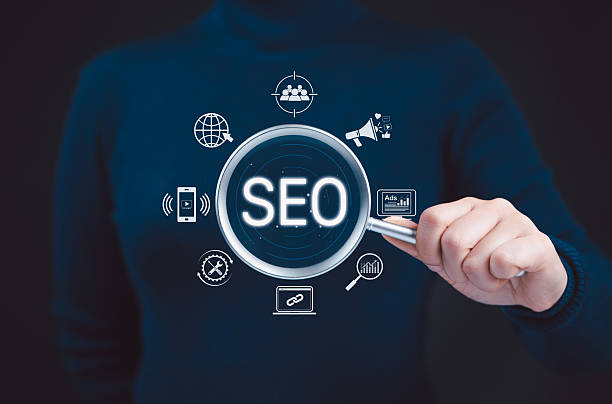
One of the fundamental concepts in a comprehensive understanding of **SEO** is the synergy between off-page SEO and on-page SEO.
Neither of these two aspects alone can unlock your website’s maximum potential; rather, it is their correct combination and interaction that leads to top rankings and stability in search results.
On-page SEO deals with optimizing elements within your website, such as keywords, site structure, loading speed, user experience (UX), and content.
These actions make your site understandable for search engine crawlers and appealing to users.
On the other hand, **Off-Page SEO** shows search engines how authoritative, trustworthy, and well-known your website is in the online space.
High-quality backlinks and brand mentions signal to Google that your content is valuable and should be displayed in higher rankings.
If a website has excellent on-page SEO but weak off-page SEO, it may not succeed in competing with sites that have stronger backlink profiles.
Similarly, a site with numerous backlinks but low-quality content or poor internal structure cannot achieve or maintain high rankings.
To achieve maximum efficiency, these two aspects must work in harmony.
High-quality and internally optimized content deserves to receive backlinks, and strong off-page SEO helps Google better understand the value of this content.
In other words, on-page SEO builds the foundation, and off-page SEO adds credibility to this structure.
A successful SEO strategy always considers both aspects and invests in their continuous improvement to create a sustainable and powerful online presence.
Frequently Asked Questions
| Question | Answer |
|---|---|
| What is Off-Page SEO? | Off-page SEO refers to a set of activities and methods performed outside your website to improve its ranking in search engines, such as building backlinks. |
| Why is Off-Page SEO important for a website? | Off-page SEO shows search engines that your website is authoritative, popular, and trustworthy, which helps increase domain authority and ranking. |
| What is the most important factor in Off-Page SEO? | Backlinks, or links from other sites to your site, are the most important factor, especially if they are from reputable sites. |
| What are the characteristics of a high-quality backlink? | A high-quality backlink comes from reputable (high-authority) sites, is relevant to your site’s topic, and has appropriate (natural) anchor text. |
| Do social media networks play a role in Off-Page SEO? | Yes, sharing content on social media can help increase visibility and indirect traffic, sending positive social signals to search engines. |
| What is a PBN and is it recommended? | A PBN (Private Blog Network) is a network of private websites used to build backlinks to the main site. Google considers this method spam, and its use is strongly discouraged and can lead to penalties. |
| How is Natural Link Building done? | By producing valuable and shareable content, building relationships with bloggers and influencers, and attracting media attention. |
| What is Anchor Text in a backlink? | It is the text in which the link is placed. Using diverse and keyword-relevant anchor texts appears more natural and helps with SEO. |
| What is the connection between Local SEO and Off-Page SEO? | Local SEO includes off-site activities such as listing on Google My Business, local directories, and obtaining online reviews, which help businesses appear in local search results. |
| How can competitor backlinks be checked? | By using tools like Ahrefs, Semrush, or Moz, you can analyze competitors’ backlink profiles and identify new link-building opportunities. |
And other services of Rasaweb Advertising Agency in the field of advertising
Smart Marketplace: A dedicated service for growth and increased sales based on marketing automation.
Smart Customer Journey Map: An effective tool to increase click-through rates with the help of marketing automation.
Smart UI/UX: An innovative platform for improving campaign management with precise audience targeting.
Smart Marketing Automation: A dedicated service for growth and increased website visits based on intelligent data analysis.
Smart Website Development: Professional optimization to increase website visits using user experience customization.
And over hundreds of other services in the field of internet advertising, advertising consulting, and organizational solutions
Internet Advertising | Advertising Strategy | Advertorial
Sources
Comprehensive Off-Page SEO Article on Seorooz
Off-Page SEO Training on Seomaster
What is Off-Page SEO? on Rayanmehr
? With Rasaweb Afarin, elevate your business in the digital world! With our expertise and experience in all areas of digital marketing, including multilingual website design, SEO, and social media management, we are with you to create a powerful and impactful presence for your brand.
📍 Tehran, Mirdamad Street, next to Bank Markazi, Southern Kazeroon Alley, Ramin Alley, No. 6

